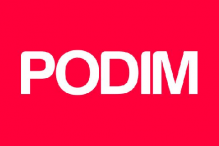The workplace is transforming as Generation Z (Gen Z) enters the workforce. Born between 1997 and 2012, this group of young adults has grown up in a world of rapid technological advancements, global connectivity, and social media. They are the first truly digital-native generation and have unique values and expectations that are shaping the workplace of the future.
Gen Zers are entering the workforce at a time of significant change, with new technologies and global trends changing the nature of work. This generation has grown up with the expectation of instant gratification and is used to having information at their fingertips. They are not afraid to challenge traditional work structures and are willing to speak out about what they believe in.
So, what can we expect from Gen Z in the workplace? Let’s take a closer look.
Work/Life Balance
One of the most significant ways in which Gen Z is redefining the workplace is through their approach to work-life balance. This generation values work-life balance and sees it as an essential part of a fulfilling life. They prioritize their mental health and well-being and are not willing to sacrifice it for a job. They want flexible working hours, the ability to work remotely, and time off to pursue their passions outside of work. This change in attitude toward work-life balance has led many companies to rethink their policies and practices. More and more companies are offering flexible working hours, remote work options, and paid time off to their employees. These changes are not just beneficial to Gen Z, but also to other generations in the workforce who are looking for a better work-life balance.
Technology Fluency
Gen Z is also redefining the workplace through its approach to technology. This generation has grown up with smartphones, social media, and instant messaging. They are comfortable with technology and expect it to be a part of their work life. They want to use technology to collaborate, communicate, and streamline work processes.
One of the most significant opportunities for Gen Z members is the ability to create their content and distribute it on the internet. Social media platforms like YouTube, Instagram, and TikTok provide a platform for them to showcase their talents and creativity, and potentially reach millions of people around the world. This has enabled many Gen Z members to develop careers as influencers, content creators, and even entrepreneurs.
Gen Z members also have the opportunity to learn and develop new skills through online courses, tutorials, and webinars. The abundance of information available online means that they can learn anything they want, from coding and graphic design to marketing and entrepreneurship. This has facilitated their ability to create their businesses at a young age and become successful entrepreneurs.
Another advantage Gen Z members have is their ability to navigate and leverage technology for their benefit. They are tech-savvy and can use various digital tools to communicate, learn, and work efficiently.
As a result, many companies are investing in new technologies to attract and retain Gen Z talent. They are adopting cloud-based collaboration tools, project management software, and digital communication platforms to create a more connected and efficient workplace. This shift towards technology-enabled work processes is not only beneficial to Gen Z but also to other generations in the workforce who are looking for more efficient ways of working.
Remote Work
Remote work is a trend that has been gaining momentum for several years, but the COVID-19 pandemic has accelerated its adoption. Gen Z, in particular, has embraced remote work as a viable option for their career development. They have seen that remote work can provide them with greater flexibility, work-life balance, and the ability to work from anywhere.
Gen Z’s preference for remote work is not just a desire for convenience but reflects a broader shift in values. They prioritize experiences over material possessions and value their time and freedom. They want to work for companies that offer remote work options, and they’re willing to sacrifice some salary to have that flexibility.
Diversity and Inclusion
Another way in which Gen Z is redefining the workplace is through its emphasis on diversity and inclusion. This generation is more diverse than any previous generation and has grown up in a world that celebrates differences. They believe in creating an inclusive workplace where everyone feels welcome and valued, regardless of their background or identity.
As a result, many companies are now focusing on diversity and inclusion initiatives to attract and retain Gen Z talent. They are rethinking their recruitment strategies, training programs, and leadership development to ensure that they are inclusive and diverse. This shift towards a more diverse and inclusive workplace is not only beneficial to Gen Z but also to other generations in the workforce who are looking for a more inclusive workplace.
Feedback
Regular feedback is not only important for Gen Z’s personal and professional growth but also for the success of the company they work for. By providing regular feedback, companies can ensure that their employees are aligned with their goals and objectives and are working towards achieving them.
Moreover, regular feedback can help companies identify areas where their employees may need additional training or support. This can lead to the development of targeted training programs that can help employees improve their skills and become more productive.
Fulfillment Over Money
Millennials are a generation that values fulfillment over money. They are more interested in working for organizations that align with their values and provide opportunities for growth and development, rather than just pursuing a high salary. This shift in attitude towards work has led many companies to rethink their approach to employee engagement and retention.
For Gen Z, fulfillment at work means being able to contribute to something meaningful, being recognized for their contributions, and having opportunities for personal and professional growth. They want to work for companies that have a positive impact on society and are making a difference in the world. They also value transparency and open communication in the workplace, as well as opportunities to collaborate and learn from their peers.
What kind of impact has Generation Z had on the modern economy?
Generation Z has already made a significant impact on the modern economy. As the first truly digital-native generation, their habits and preferences have shifted the way businesses operate and market themselves.
One of the most notable ways in which Generation Z has impacted the economy is through their demand for personalized and authentic experiences. This has led to a rise in customization options and a focus on transparency and social responsibility. Brands that fail to meet these expectations risk losing the loyalty of this influential demographic.
Additionally, Generation Z’s comfort with technology has fueled the growth of e-commerce and mobile commerce. They expect fast and convenient access to products and services, and companies that can’t deliver risk being left behind.
Another way in which Generation Z has impacted the economy is through its focus on social media and influencer marketing. They value the opinions of their peers and are more likely to make purchase decisions based on recommendations from social media influencers or friends.
Finally, Generation Z’s ability to adapt quickly to new technologies and trends means that companies must be agile and adaptable to keep up. This has led to a greater emphasis on innovation and experimentation in business strategies.
In conclusion, Gen Zers are redefining the workplace in many ways. They bring with them a new set of values and expectations that challenge traditional norms. As they continue to enter the workforce, organizations need to adapt to their needs and preferences to attract and retain top talent. By embracing flexibility, diversity, and inclusion, organizations can create a workplace that appeals to Gen Z and sets them up for success.
Overall, Generation Z’s impact on the modern economy has been significant and is sure to continue as they grow into a larger and more influential consumer base. Businesses that can adapt to their preferences and expectations will be well-positioned for success in the years to come.
________________









